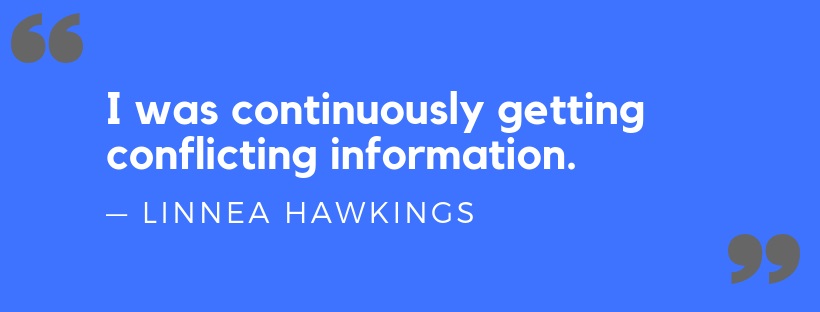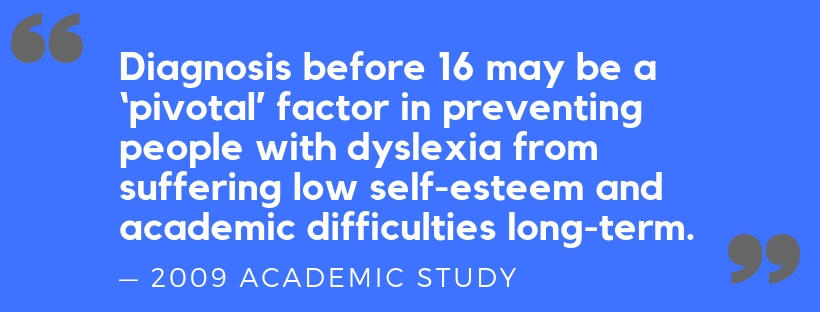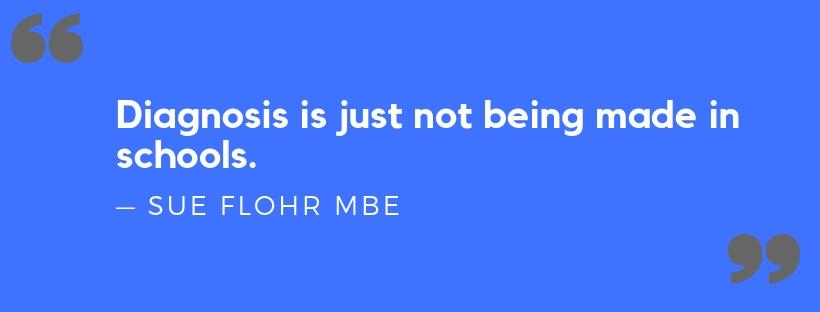People with dyslexia still face too many barriers to diagnosis, support and employment, according to a recent graduate and aspiring writer from Twickenham.
Linnea Hawkings, 24, graduated with a 2:1 in American Studies from the University of East Anglia (UEA) last summer.
The three-year undergraduate degree took her five years to complete, which she said was due to a combination of mental health issues and a struggle to get the right support for her dyslexia.
Miss Hawkings said: “University shouldn’t be easy, but equally it shouldn’t be mentally debilitating either. When you keep throwing in more confusion and barriers, it suddenly becomes like a chase you can’t win.”
She added: “I love writing and hope to have a career in writing. Lot of poets and writers have dyslexia. It doesn’t mean that you can’t do it, you’ve just got to take alternative routes.”
Miss Hawkings said she was diagnosed during her first year of university, with the process costing around £600, of which she had to pay £100 and the rest was paid for by UEA.
The process involved a screening test with university support staff, a diagnostic assessment with an educational psychologist then a needs assessment.
She was diagnosed with dyslexia, dyspraxia and tendencies of ADD and prescribed a mentor and a range of assistive software.
The support would be provided using funding from the Disabled Students’ Allowance (DSA), which can take up to five months to receive after applying.

But according to Miss Hawkings, she only had a few sessions with her mentor and did not get the software because the DSA funding never arrived.
She believes this was due to payment being tied to her student finance, which she was having issues reinstating due to the time she had taken off.
“I was continuously getting conflicting information. One minute I was told you need to complete a fresh application and then there was information saying I need to send in the report from the psychologist,” she said.
She added: “As long as you can prove that you have a place studying at a university, there shouldn’t be a barrier to progressing the DSA application to put everything in place before you go back.”
UEA director of student services Dr Jon Sharp said: “UEA is committed to supporting students like Linnea to succeed while at university.
“Through our Student Support Service, UEA students have access to learning enhancement tutors, wellbeing advisers and finance advisers who provide help and guidance.
“We recognise navigating a way through external agencies like Student Finance England and the Disabled Students Allowance scheme can be time-consuming and difficult and we try and support students through those processes.”

According to research conducted in 2009 on 20 British college students, a late dyslexia diagnosis can be linked to poorer academic performance and developing mental health issues.
David Armstrong, senior education lecturer at Edge Hill University, and Neil Humphrey, senior educational psychology lecturer at the University of Manchester, found that members of the study diagnosed after 16 had greater difficulties dealing with their disability and were likely to need additional counselling and other psychological support.
They also tended to lack motivation and had higher rates of dropping out of college compared to members of the study who were diagnosed before they were 16 who all went on to university.
The academics concluded that, while more research was needed with a larger sample size, diagnosis before 16 may be a ‘pivotal’ factor in preventing people with dyslexia from suffering low self-esteem and academic difficulties long-term.
Sue Flohr MBE is head of policy at the British Dyslexia Association and was also diagnosed with dyslexia as an adult.
She said: “Late diagnosis comes up an awful lot, especially with high achieving people. The more able you are, the harder it is to get a diagnosis as you can often sail through up to a point.
“With all the funding cutbacks, diagnosis is just not being made in schools. It’s very hard for a young person to get a diagnosis, to get all of the support in place and to start learning a new degree.”
Mrs Flohr added that many people still think dyslexia only affects reading and spelling, but it can affect information processing, short-term memory and organisational skills as well.
She highlighted a government initiative called Access To Work which offers funding for people with dyslexia who need assistance in the workplace.

Tabassum Ahmad, founder and managing director of EmployAbility, helps students and graduates with dyslexia and other disabilities get into investment banking, finance, tech and corporate law.
She said: “We had a Cambridge maths graduate with dyslexia who could not pass a numerical reasoning test. It was clearly nothing to do with his ability in maths but to do with the nature of the test.”
“We’re not asking employers to lower their bar. All we’re saying is maybe the mechanism or the process that they’re using to assess if someone is suitable needs be looked at,” she added.
Student Finance England were contacted for comment.
